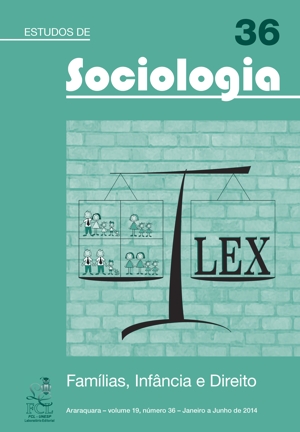Agents and tutelary counselors in the front line of sexual abuse prevention
Keywords:
Sexual violence, Public officials, Prevention,Abstract
Sexual violence against girls under the age of eighteen, in the form of sexual abuse has been identified as an endemic phenomenon by public officials in the cities of São Paulo. Among t agents and tutelary councilors, which reveal the size of their work linked to the Social Assistance System, the Health System and the Public Security System, dialoguing with their local agents. However, prevent sexual abuse and exploitation constitutes a greater challenge, consciously or unconsciously. This paper opens a discussion on the urgency of designing social networks to prevent sexual violence, with participation of researchers and university students. It is based on surveys of public officials in the years 2011 to 2013 in five cities of São Paulo, with over 200 thousand inhabitants.
Downloads
Downloads
Published
How to Cite
Issue
Section
License

À revista Estudos de Sociologia ficam reservados os direitos autorais pertinentes a todos os artigos nela publicados.
Os artigos publicados e as referências citadas na revista Estudos de Sociologia são de inteira responsabilidade de seus autores.
A Estudos de Socilogia utiliza a licença https://creativecommons.org/licenses/by/4.0/ (CC BY), que permite o compartilhamento do artigo com o reconhecimento da autoria.



